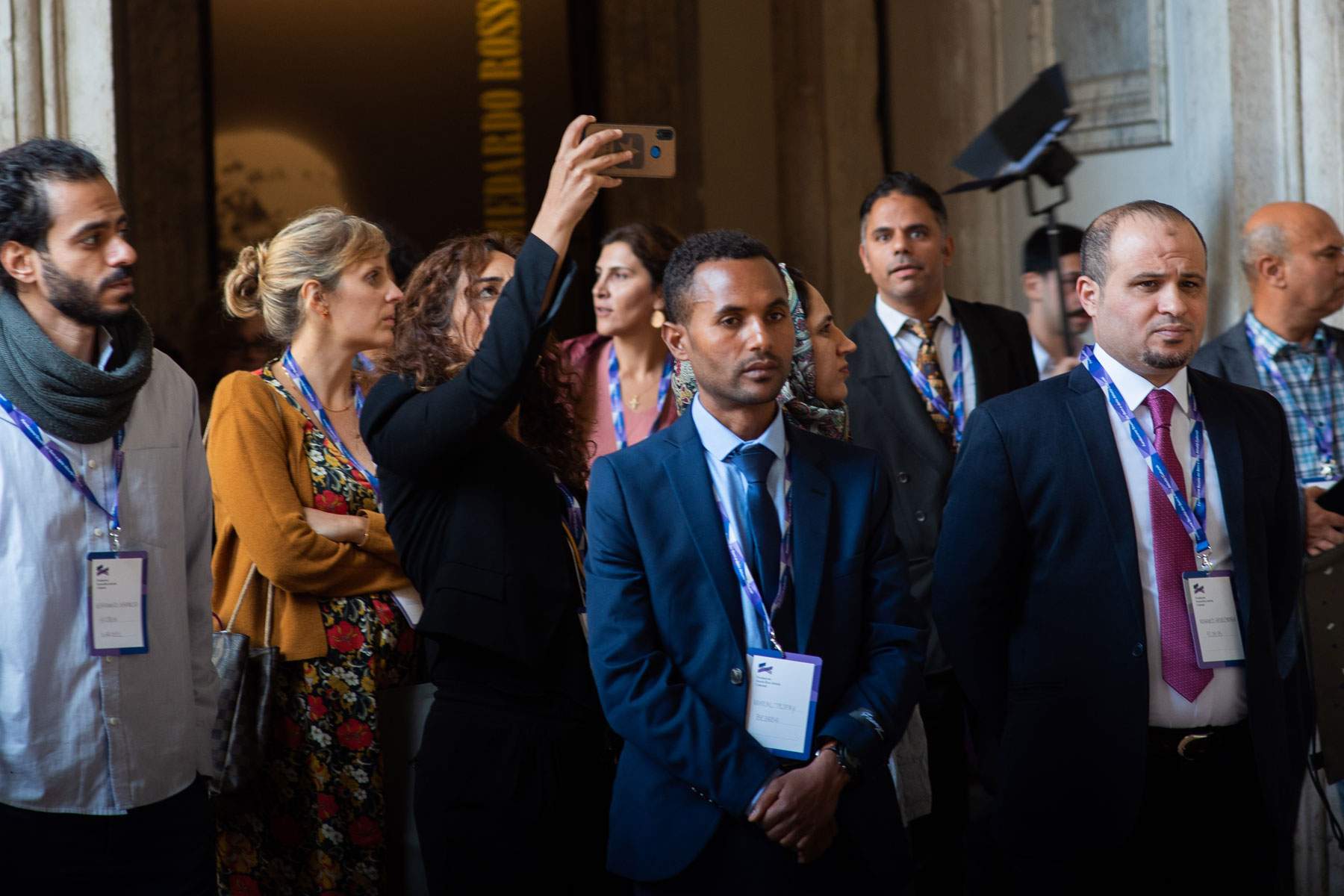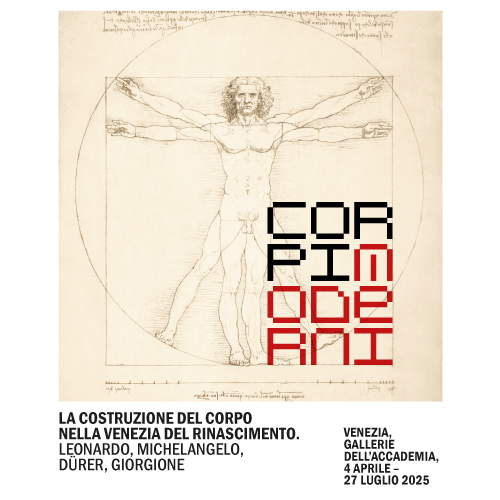Heritage School, applications for the 2020-2022 course kick off. Everything you need to know
The deadline for applicants to apply for the 2020-2022 Heritage School Course has been extended from April 6 to July 24, 2020: this is the highly specialized and research course for heritage professionals organized by the Fondazione Scuola dei Beni e delle Attività Culturali, a participatory foundation for training, research and advanced studies within the remit of the Ministry of Cultural Heritage and Activities and Tourism, which is a founding partner of the School. The extension is to allow participation also for those candidates who will have obtained the necessary qualification after the old deadline of April 6, in light of the Cura Italia decree that extended the last session of final exams for the 2018/2019 academic year to June 15 (however, the requirements of the announcement remain unchanged).
The Course is free of charge and makes available 20 annual scholarships (each of 14,700 euros gross), has a two-year duration, involves full-time commitment on the part of the students, and is carried out with classroom activities in Rome, study visits and research activities in Italy, and internships (placements) in Italy and abroad. At the end of the Course, after evaluation of the entire course, the title of Diploma of High Specialization and Research in Cultural Heritage is awarded, corresponding to 150 ECTS (European Credit Transfer and Accumulation System) credits, valid and recognized within the European space. The Course is reserved for archaeologists, architects, planners, landscape architects and conservators, art historians, physical anthropologists and demoethnoanthropologists, archivists, librarians and other specialists in cultural activities who hold a postgraduate school degree or PhD (at least two years) in subjects related to heritage and cultural activities. To enter, it is also necessary to be under 36 years of age as of April 6 and to be proficient in Italian and English. To read the call for applications or to apply (the deadline is July 24, 2020), one must log on to the School’s website.
The selection of the students is entrusted to a special committee of experts, appointed at the deadline of the call, and will proceed in the first instance through the evaluation of the candidates’ qualifications and experience, at the end of which a first list of those admitted to the next stage will be published on the School’s website. The latter is a written test that tests the candidate’s knowledge of English (and Italian for candidates residing abroad or holding foreign degrees) and psycho-aptitude skills. At the end of the written test, a further ranking list is published, after which the final interview will be held (candidates must confirm their participation within seven days from the date of publication of the schedule), which will take place either at the Foundation’s headquarters in Rome (travel is at the candidate’s expense) or by videoconference. The interview will be conducted in Italian and English and is aimed at deepening the candidate’s knowledge, skills, attitudes and motivations in relation to the characteristics of the Course. At the end of the interviews, the committee will draw up the admission ranking.
The Course aims to train highly specialized cultural professionals with high skills. “Today, the concept of cultural heritage,” reads the Course presentation, “has expanded considerably: the range of types, places, and goods that are part of it has grown and, above all, the awareness of the need to look at heritage in its relationship with the physical, social and economic environment that surrounds it has matured, especially as cultural policies are increasingly oriented toward a network dimension and subsidiarity between the public and private sectors. As a result, today’s society imposes challenges that have important reflections on cultural heritage care and management. And it is in this context that the Course was born, which, we read further in the presentation, ”is structured with the aim of providing neo-professionals of cultural heritage, rich in specialized technical knowledge, with the skills to care for heritage according to a broad and integrated perspective, necessary to face today’s challenges and imagine and build tomorrow.“ The need, in particular, is to ”curve the source professional profiles to make them more competitive and adherent to both the new contexts of cultural heritage and the needs of cultural institutions, organizations and enterprises."
The Course is set up as a long laboratory, and is divided into lectures, seminars, exercises and study visits (in particular, the first year will be followed by a cycle of introductory lectures, a common module and three specializing modules, and then ending the second year with an internship): teaching activities that favor the inductive method and promote both individual and shared work. Going into the specifics, the introductory lectures address emerging themes and underlying issues (such as heritagization processes, to whom cultural heritage belongs, and so on) to suggest research tracks for students to follow during the first year and finalize in the organization of a public workshop/seminar. The common module is divided into a number of sub-modules: the first ones deal with the disciplines of the legal-administrative and economic-managerial area with the aim of learning in a non-scholastic way the meaning and role of norms, the processes of managing projects and organizations. Then there is a module dedicated to DigitalHumanities (humanistic informatics): the purpose is to explore the potential offered by technologies and the relationship between cultural heritage and digitization. A further module is dedicated to Cultural Heritage Communication, while the last of the common sub-modules is on Cultural Heritage and Landscape Care: students delve into, discuss and experience innovative ways in which to practice cultural heritage and landscape care and management.
The specialization module assigned to the learner enables them to address cross-cutting areas deemed a priority for modern heritage management. There are three possible paths of the specialization module, and the student can choose one of them: Cultural heritage and territorial development, which will put the student in a position to promote and support productive, organizational and cultural processes (including innovative ones in his or her own institution or organization) based on the protection and enhancement of the territorial and landscape heritage of reference, and on cooperation open to its inhabitants; Cultural heritage and digitization, which will make acquire the learner the skills to define, promote and support the strategic vision of digital and technological innovation processes based on the needs of the cultural institution and its audiences; Cultural Heritage and Mediation, capable of training learners to research, understand and define the needs and requirements of stakeholders and empowered users in order to foster involvement and physical and intellectual access to cultural heritage.
Finally, theinternship concludes the Course: the School, in agreement with bodies and institutions operating at the national and international level, proposes work and research projects for the students to develop on site in order to put into practice and refine knowledge and skills acquired in the First Year Course. The student will not only carry out the assigned project, but will also be required to produce a written paper in the form of a scholarly article of critical and methodological reflection on what has been achieved. To get an idea of who the teachers are (directors of major museums, senior civil servants, jurists, art historians, curators, university professors) and where one can work during the internship period (major museums, foundations, public agencies, private companies) you can scroll through the section of the website dedicated to the 2018-2020 course, where you can find a lot of information.
At all stages, trainees are constantly monitored. “Both the selection of trainees and the selection of teachers, tutors, collaborators and coordinators of training, scientific and research activities for the School of Heritage course,” we are informed by the Foundation, "are defined by special Regulations, which can be found on the School’s website, both in the pages dedicated to Transparency and in the course edition pages.“ The School is particularly keen to point out that ”the teachers of the Heritage School are more typically operators and experts in cultural heritage management, coming from public or private realities, with a wealth of experience and knowledge dropped into reality."
What the School intends to give its students is, he points out, a “training updated to the times, oriented to the international dimension, fueled by research. Whether it is higher education or instead continuing education, the preferred training model is multidisciplinary and transversal and integrates, by its very nature, didactics and experience. In the light of the profound transformations of role and meaning that nowadays invest cultural heritage, the Foundation’s training activities (without ignoring the acquired skills gained so far in our country) offer the professional constantly updated management tools.” And the aim of the Course is to “foster continuity between specialized training and the world of work.” But that’s not all: the Foundation also intends to promote research with an activity that is linked to that of training, through projects and programs, conventions, seminars, conferences, round tables, and there is no shortage of dissemination activities to spread knowledge of issues related to the management of cultural heritage. All of this is aimed at an audience of professionals, students, and enthusiasts (who are reached, for example, through the Open Classes cycle, meetings during which personalities in the field hold lectures open to all).
“2019,” let the School’s top management know, “was the year of organizational consolidation and entrenchment of activities. In terms of training, in addition to the School of Heritage Course, a high-level training activity, continuing education activities have started. In particular, the first edition of the International School of Cultural Heritage, a permanent workshop dedicated to foreign professionals involved in the management of cultural heritage, has been launched and is in its final stages, with each edition circumscribing a geographical area of origin of the participants and a thematic area of investigation and study. Also on the subject of continuing education, the information and training program designed for the National Museum System is in the works and will start this spring.” More information can be found in this regard in the appropriate sections of the School’s website (“Research” and “Appointments”).
Pictured: a group of students from the 2018-2020 course on a study visit to Palazzo Altemps, Rome.
 |
| Heritage School, applications for the 2020-2022 course kick off. Everything you need to know |
Warning: the translation into English of the original Italian article was created using automatic tools. We undertake to review all articles, but we do not guarantee the total absence of inaccuracies in the translation due to the program. You can find the original by clicking on the ITA button. If you find any mistake,please contact us.




























